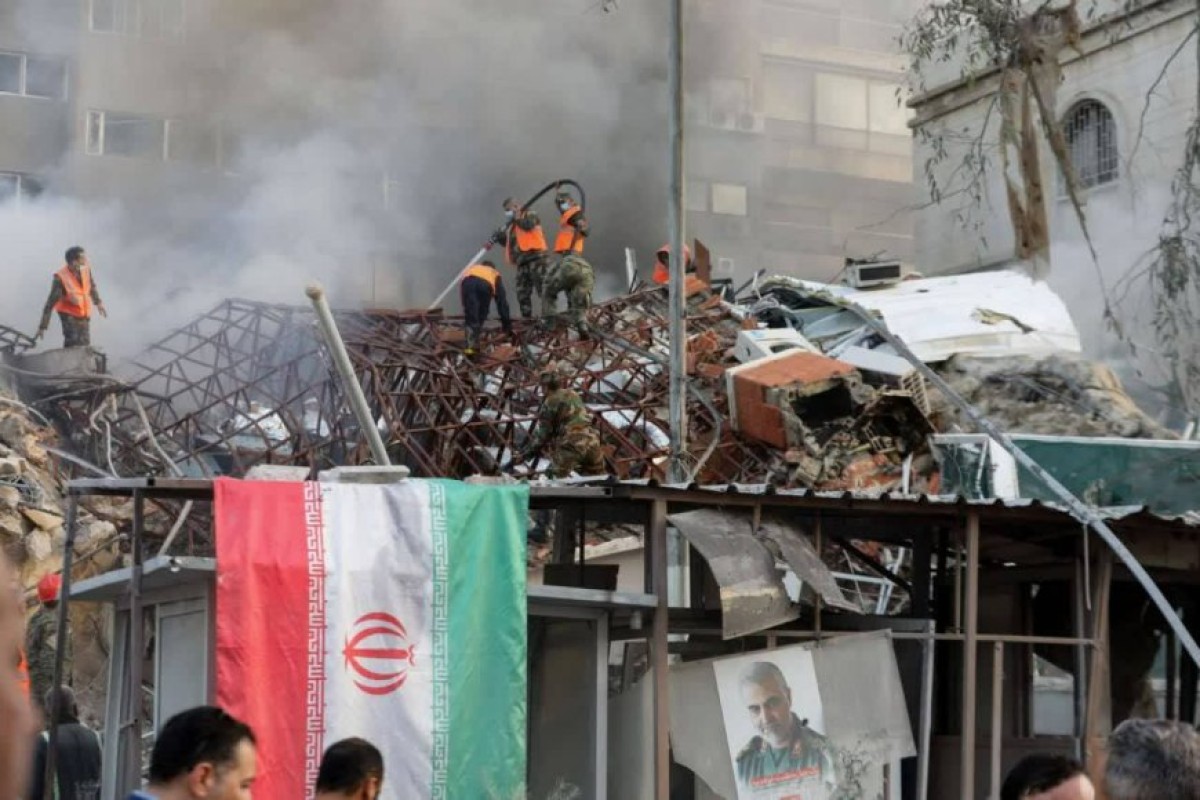 304
304
The Looming Storm: What are the implications of Israel's terrorist strike on Iran's Consulate in Syria?
The Looming Storm: What are the implications of Israel's terrorist strike on Iran's Consulate in Syria?
By: H. Zaïm-Bashi
The recent terrorist strike by the Zionist regime on the consulate building of the Islamic Republic of Iran in Damascus serves as a stark indicator of the shifting dynamics of conflict between Tehran and Tel Aviv. Over the past few years, the Israeli regime has conducted a series of targeted assassination operations on Iranian soil, in particular murdering nuclear scientists. However, the recent assassinations of Iranian senior military advisors in Syria point towards a strategic shift in the Israeli regime's approach towards Iran.
Diverse perspectives abound regarding the implications of this terrorist assault by the Zionist regime. Some analysts interpret the attack as an overt declaration of war between Israel and Iran. Given that a country's consulate is considered sovereign territory under diplomatic conventions, the Israeli strike effectively constitutes an infringement on Iran's territorial integrity. Consequently, global apprehensions have been raised about the potential escalation of conflicts in the already volatile Middle East region.
The Islamic Republic of Iran has not remained idle in the face of this terrorist assault, and a retaliatory response is anticipated to be forthcoming, although the timing and form of Tehran’s revenge hold significant weight. While some observers speculate that Israel's objective is to instigate a broader conflict in the Middle East, potentially drawing the United States closer to an unwanted war, Iran's calculated messaging to Washington through Swiss diplomats demonstrates a nuanced understanding of the Zionist regime's sinister intentions. Iran appears poised to leverage this crisis as an opportunity to fortify its regional standing and bolster its resolve in combating terrorism and expelling American troops from both Iraq and Syria.
However, the current climate appears conducive for Iran to enact retaliatory measures, with widespread global condemnation of the Zionist regime's actions serving as a boon for Tehran. The resolute stance articulated by Iran's Supreme Leader, Imam Khamenei, underscores the gravity of the situation, with a vow to hold the perpetrators accountable.
Iran's potential responses may encompass a spectrum of actions, including the deployment of advanced ballistic missile capabilities to neutralize the Zionist regime's defensive infrastructure. Legal avenues for redress through international forums also remain an option, although the efficacy of such measures in holding the aggressor to account remains uncertain, given past failures of international bodies to address similar atrocities.
Crucially, Iran must prioritize enhancing its deterrence capabilities to forestall future provocations and secure its national interests. The imperative of bolstering defensive measures looms large as a strategic imperative for the Islamic Republic in the face of persistent threats from hostile actors.
In conclusion, the Zionist regime's terrorist assault act against Iran signifies a dangerous gambit by Netanyahu, with far-reaching and dire consequences looming on the horizon for Israel. The internal and external pressures mounting on Netanyahu's administration, especially amidst discussions of a potential ceasefire in the Gaza conflict, underscore the recklessness of this provocative move. The specter of widening hostilities and drawing in external powers, including the United States, appears to be a divisive strategy that risks alienating even erstwhile allies on the global stage.
 304
304
Comment
Post a comment for this article